Building Out Your Holiday Marketing Campaign Strategy
Published on July 20, 2022/Last edited on July 20, 2022/4 min read

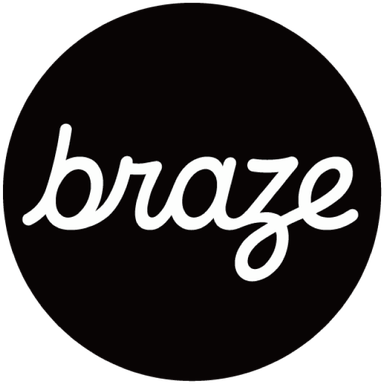
Team Braze
There's a reason you and your team are hard at work putting together your holiday marketing strategy and getting your game plan in motion months ahead of time. That's because almost nothing drives customer engagement and purchases quite like the holiday season.
To understand those challenges and to get a better picture of how customer engagement plays out in connection with the winter holiday season, Braze pulled data on how users engaged with nearly 200 retail and eCommerce brands before, during, and after the holidays. We found that holiday campaigns are often more effective than campaigns sent during the rest of the year—but they are also more challenging.
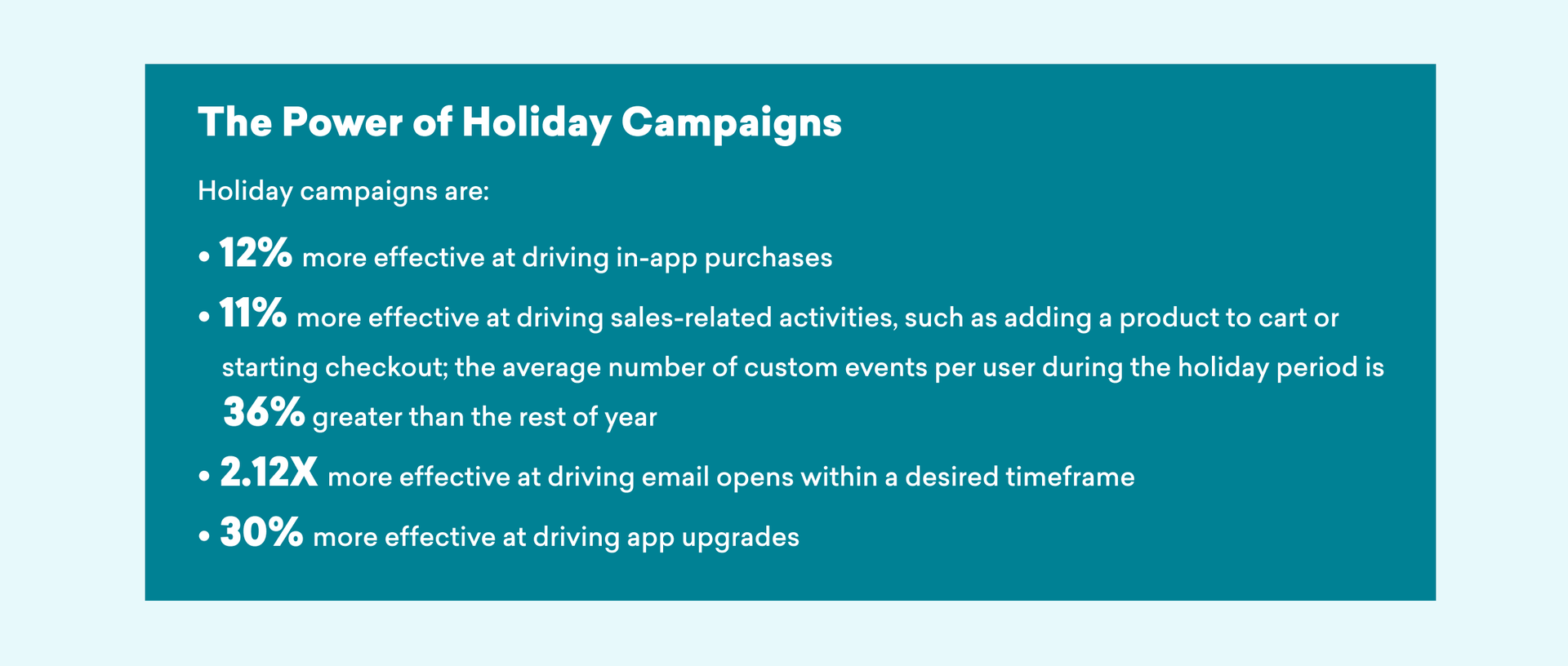
Users tend to be more receptive to messaging during the holidays than during non-holiday times. For each additional marketing channel used, brands generally achieve gains in likelihood to purchase, repeat purchase rates, and average lifetimes during this time of year more so than at other times of the year.
With each marketing channel added to the messaging mix, brands can experience a…
- 4.5X uplift on purchase likelihood during the holidays vs. 3.4X normally
- +15% uplift on repeat purchase rate during the holidays vs. +12% normally
- 2X uplift on average user lifetime during the holidays vs. +26% normally
As you get your holiday marketing planning underway, check out our four-part 2022 Holiday Marketing Success Article Series for more best practices to shape your strategy.
4 DO's and DON'Ts for the 2022 Holiday Marketing Season
#1: DO Ensure You Have the Right Tools to Deliver a Great Experience and Support a Cross-Channel Strategy
Your technology ecosystem is critical to building out a comprehensive cross-channel strategy that aligns your efforts across owned messaging channels, retail outlets, customer service solutions, and other third-party partners and ensures you’re able to communicate with your audience in thoughtful, coordinated ways.
Engaging customers via even a single channel during the holiday season offers plenty of advantages. Customers that opt into receiving brand outreach via just one channel are more likely to make purchases, be active, and stay retained for longer than customers that don't opt into receiving any brand outreach.
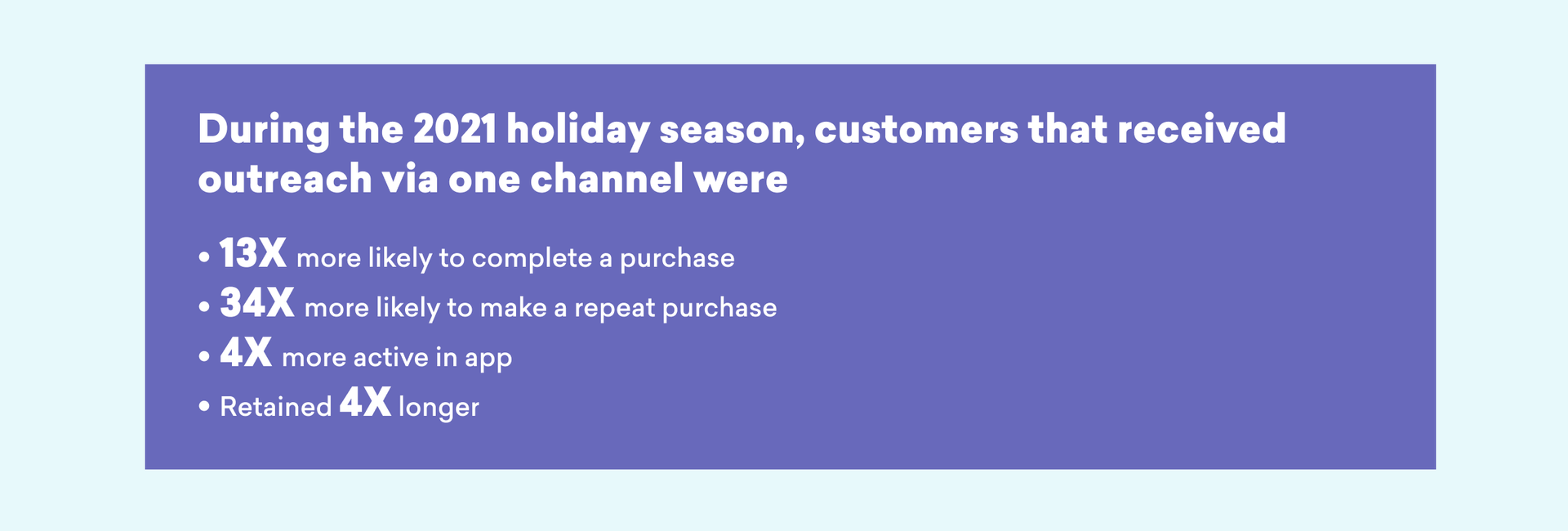
But if you want to get even more mileage out of your holiday campaigns and enjoy even more than the benefits listed above, it's time to expand beyond a single-channel strategy and adopt a cross-channel one.
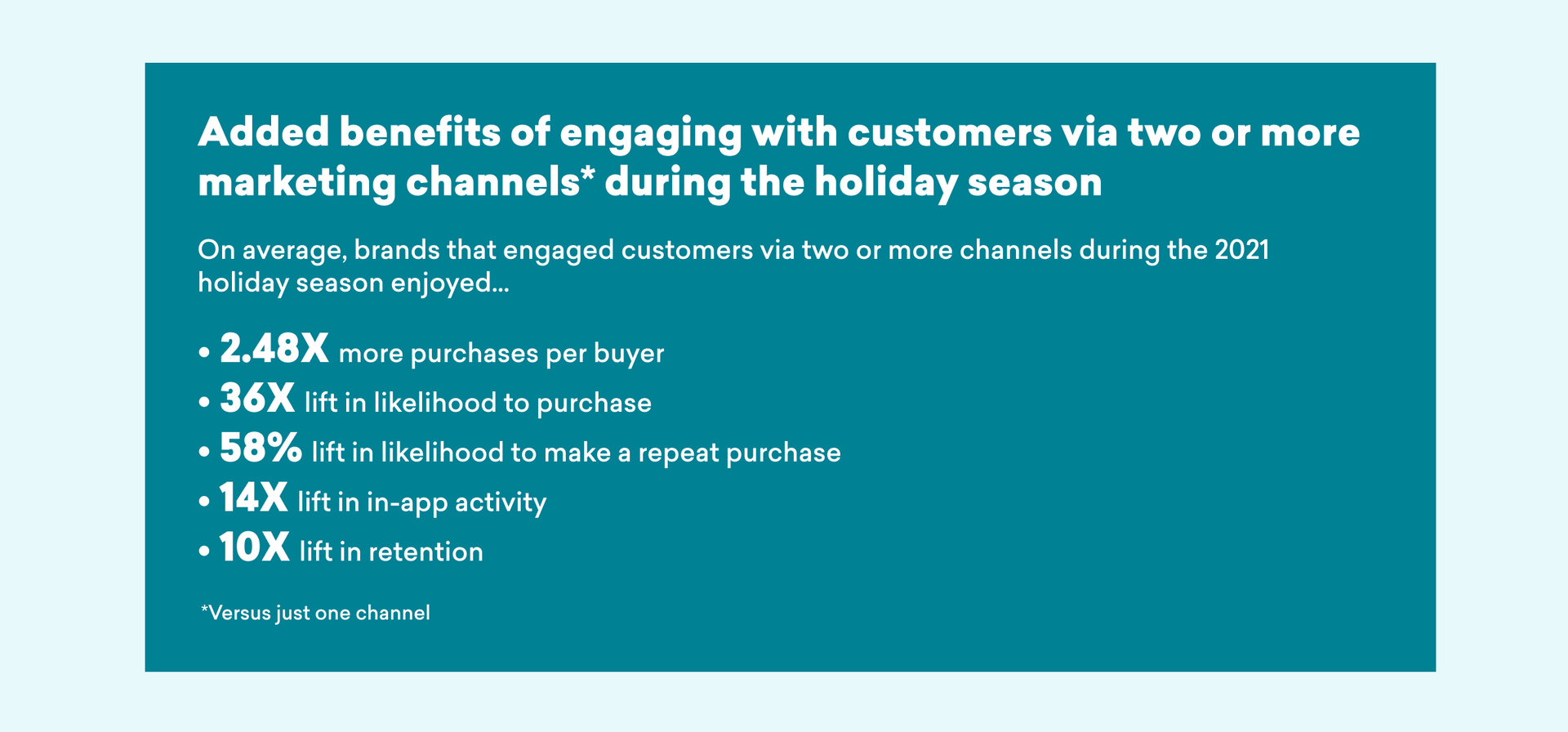
#2: DO Finalize Which Channels You'll Use As Part of Your Cross-Channel Holiday Marketing Strategy
Many consumers will be moving between both mobile and desktop, so finding the right channel balance is critical to maximize engagement and revenue. Start by determining:
- Which channels need to be included in the campaign (e.g. email, SMS, push, in-app, in-browser, social media, and digital ads)
- Which audiences you want to reach via those channels (e.g. loyal users, first-time customers)
- What messaging copy and creative needs to be developed for each channel and segment
Finding the right mix of channels and audience segments for your brand’s specific strategy is absolutely critical to ensuring a multi-faceted engagement strategy and driving maximum engagement with your customers.

#3: DON'T Forget to Leverage Personalization as an Accelerant to Fuel Your Efforts
Sending the same message to every member of your audience isn’t a winning strategy these days, because consumers have grown to expect brand experiences that speak to them as individuals. With so many brands vying for customer attention, brands need to work to establish personal connections in communications with consumers. One way to do this is through personalization tools like segmentation, triggered campaigns, Liquid personalization, and dynamic content personalization (i.e. Connected Content). These will help you:
- Fulfill your customers’ need for responsive, relevant messages
- Increase your customers' chances of engaging and taking action
- Amplify the impact of your holiday messaging campaigns
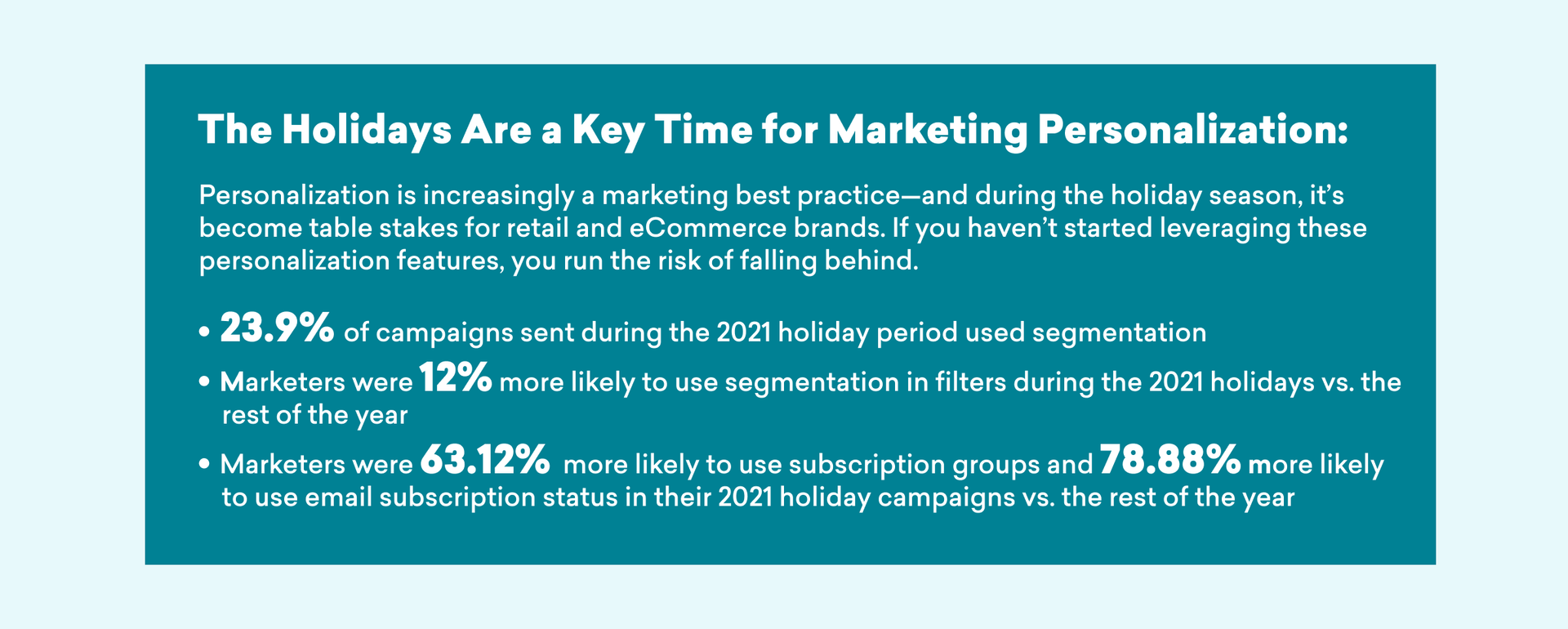
#4: DO Get Creative with Your Campaigns with Inspiration from the World's Top Brands
Once you identify your marketing mix and determine your personalization strategy, it’s time for the fun part: Building the creative. As you develop your campaigns, remember to:
- Be true to your brand purpose
- Bring your brand values to your holiday outreach in an organic way
Get your copy of our 2022 Retail Inspiration Guide and unlock 30+ customizable customer engagement campaign templates that have helped the world's savviest retailers deliver results. Take advantage of these step-by-step examples to effectively activate, monetize, and retain your customers.
Methodology
All data presented is drawn from the Braze customer base of 171 Retail & eCommerce brands (for this purpose an individual customer may represent multiple brands, as certain customers may have parent and sub-brands) and has been anonymized and aggregated. The data was analyzed for the period of January 1, 2021 - January 1, 2022, with the holiday period defined as Thanksgiving 2021 to New Year's Day 2022.
Releated Content
View the Blog
Braze vs Salesforce: Which customer engagement platform is right for your business?

Team Braze
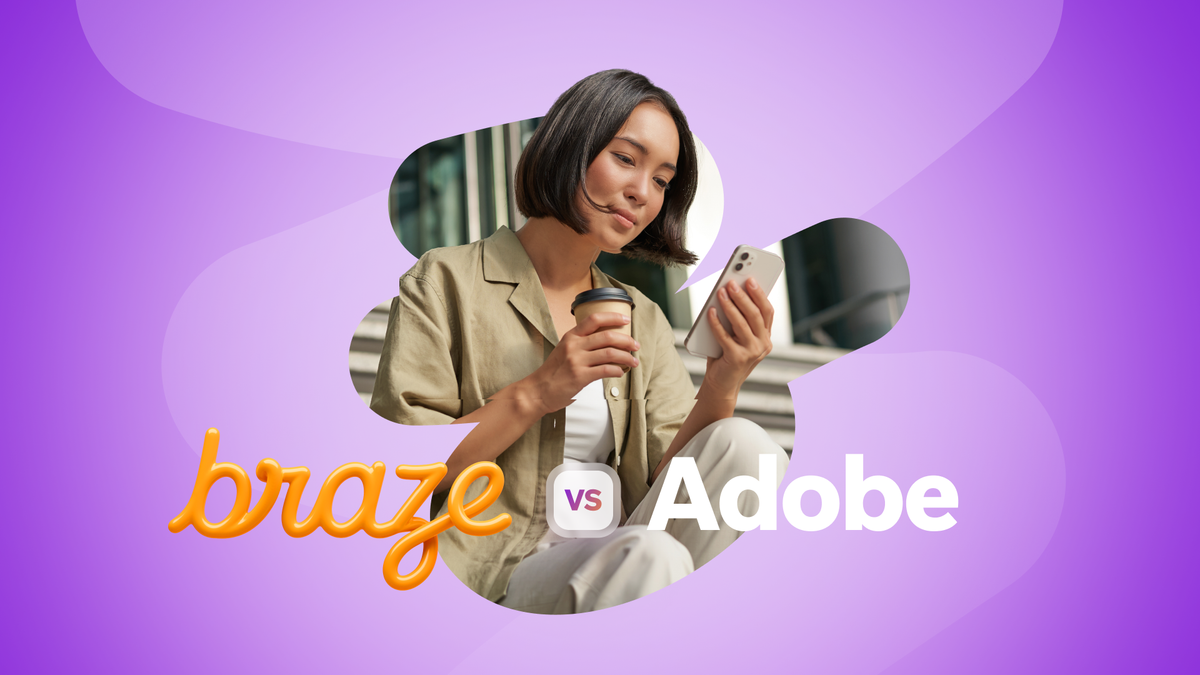
Braze vs Adobe: Which customer engagement platform is right for your brand?

Team Braze
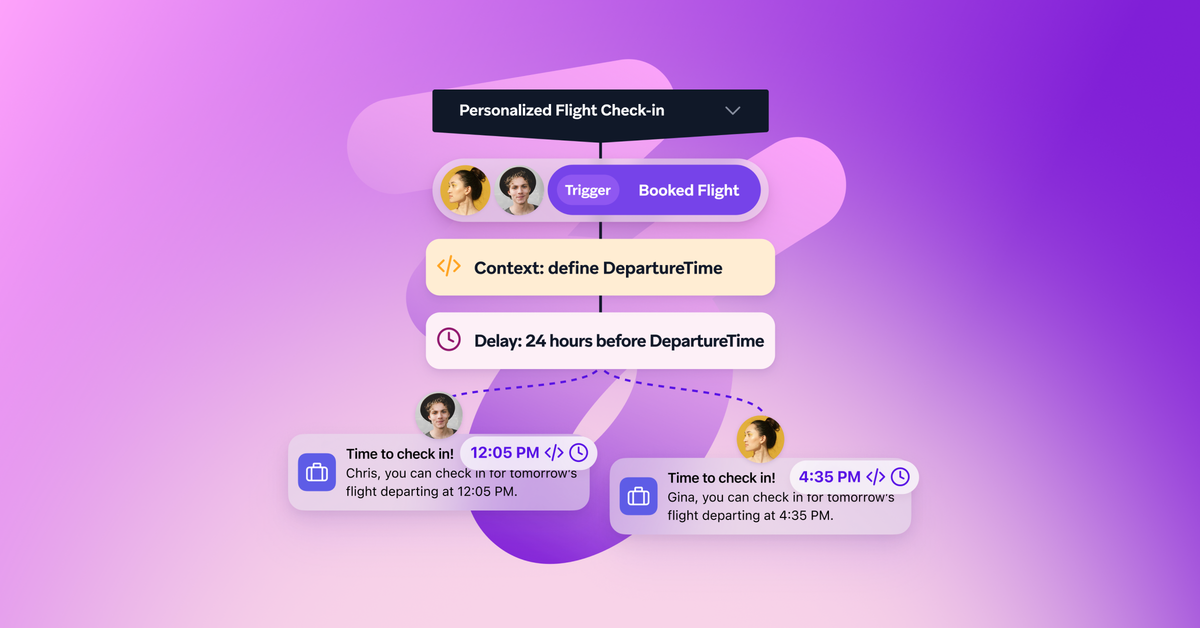
Every journey needs the right (Canvas) Context
